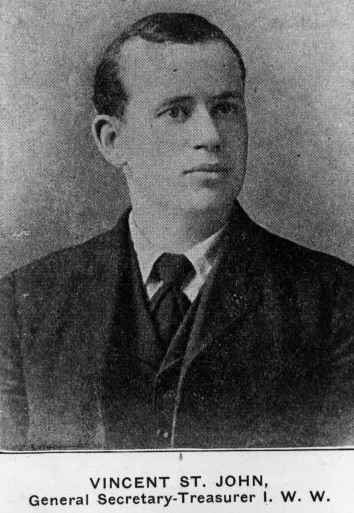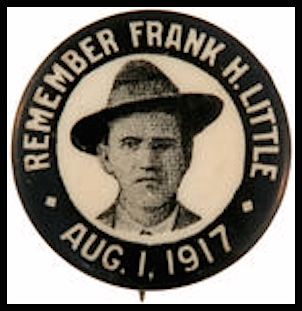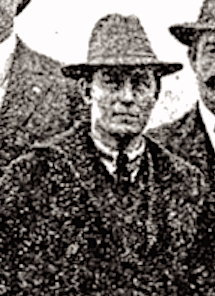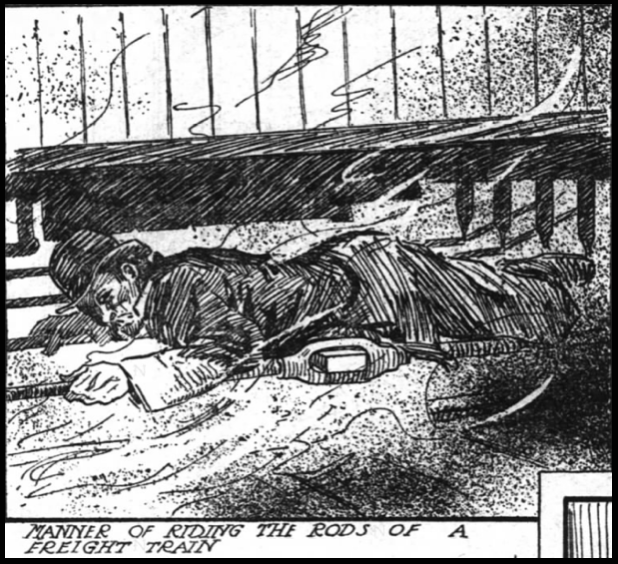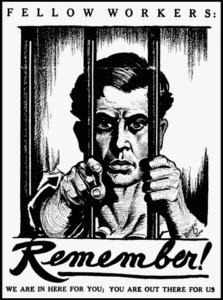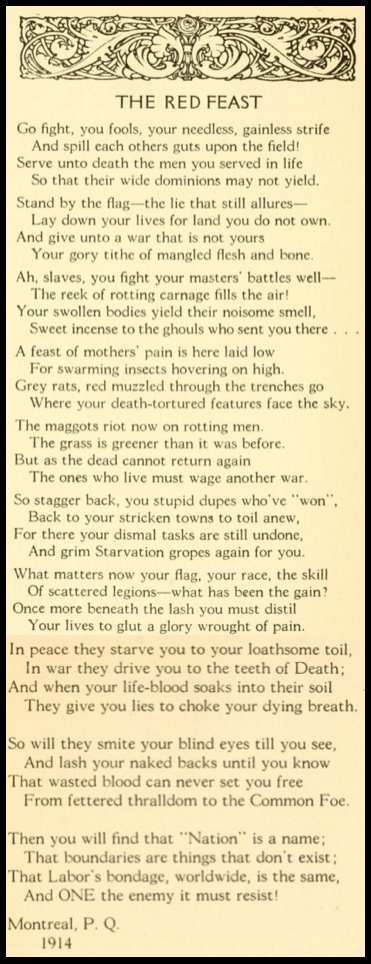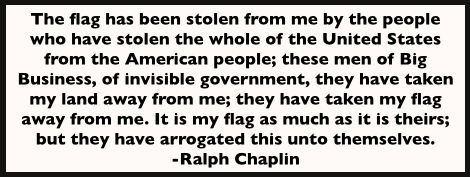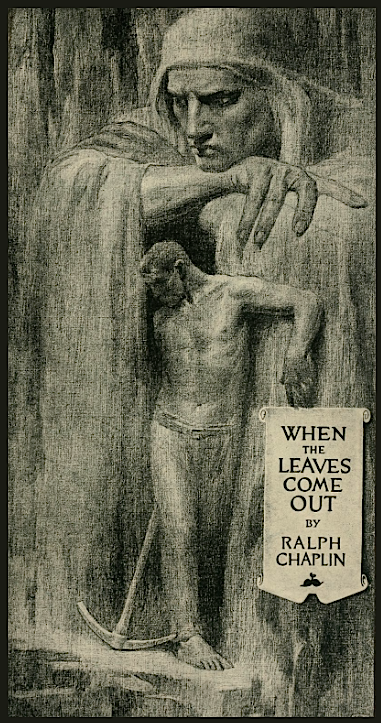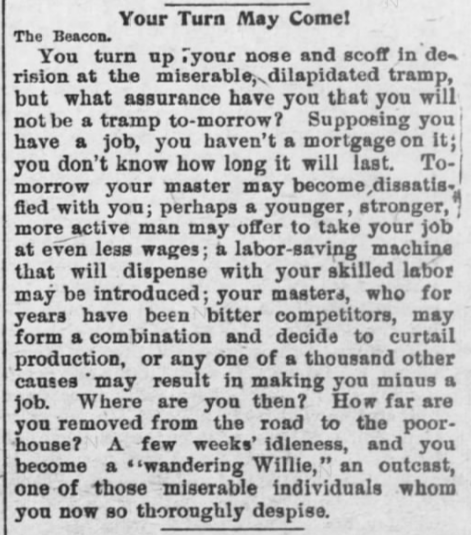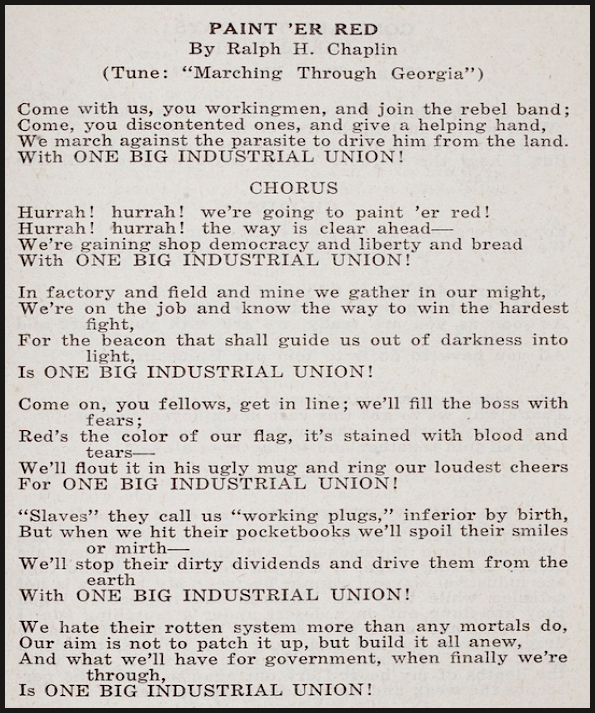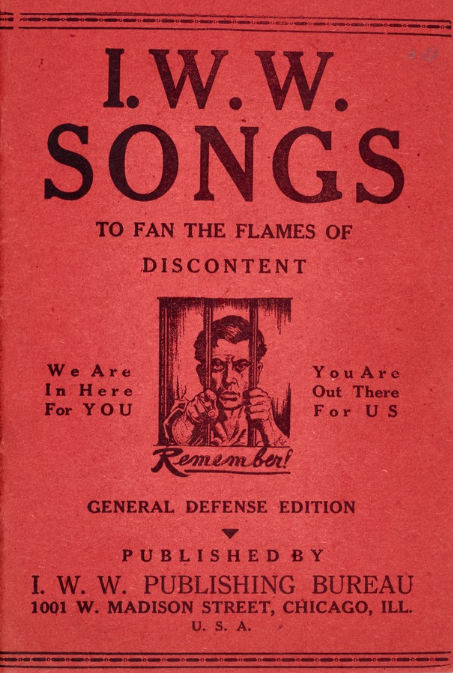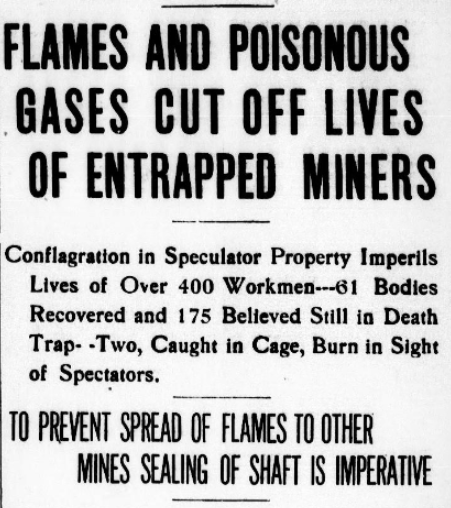[In Lawrence] they were striking
to maintain the human race
in that part of the country—and all over—
because the interest of wage workers
the world over is bound together.
-Vincent St. John
~~~~~~~~~~~~~~~~~~~~~~~~~~~~~~~~~~~~~~~~~~~~
Hellraisers Journal, Tuesday August 13, 1918
Chicago, Illinois – I.W.W. Trial, The Saint Takes the Stand
The Saint Speaks on the Workers’ Right to Life
On August 6th, Defendant Vincent St. John, former General Secretary-Treasurer of Industrial Workers of World, took the stand. Harrison George offers the following report:
From the beginning of the trial the prosecution harped upon that sentence in St. John’s “History and Structure of the I. W. W.,” which says: “The question of ‘right’ or ‘wrong’ does not concern us.”
Q. Why did you put those words in quotation marks?[Answer:] For the reason that in every struggle the wage earners have made during my experience, no matter what they have done, the exponents of the employing class, the press, platform, politicians of all degrees and stripes, have always told them that no matter what they were after, that it was not ‘right’; something they did was ‘wrong.’ The only time a strike is ‘right’ with them is when you have no chance to win it; when they want you to strike; when they want to wipe out whatever vestige of organization you have, then the strike is ‘right,’ that is, a good time to strike.
The Lawrence strike was not entirely a question of getting better wages for those mill operatives, but it was a question that involved the very life and death not only of the men, women and children who were on strike, but also of unborn generations of these same operatives. The death rate in that section among children is 400 out of every 1,000 before they are 1 year of age.
When they were striking in Lawrence they were striking not only for an immediate proposition, but they were striking to save the lives of those 400 unborn children, if you please. They were striking to maintain the human race in that part of the country—and all over—because the interest of wage workers the world over is bound together.
[Photograph and emphasis added.]

